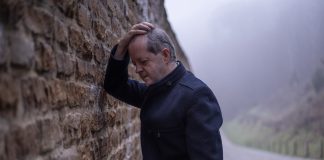Love doesn’t give up
Love: the ultimate subject. We love people for who they are. However, there’s a kind of love too lofty to truly encompass all the nuances, a love that manifests itself toward people regardless of who they are or what they have become. Such a love beautifully encapsulates the story of Ian and Larissa.
The need to learn to say no
Although we may not like everyone, we want everyone to like and accept us. We raise our eyebrows suspiciously if someone treats us with indifference or, worse, with hostility. We feel misunderstood and rejected. And the feeling of rejection is as intense as physical pain.
Integrity deficit disorder
"Integrity without knowledge is weak and useless, and knowledge without integrity is dangerous and dreadful"—Samuel Johnson.
Scars that heal
He had made the mistake of asking the doctors for a mirror. Terrified, he saw a monster reflected in it. Lying on the hospital bed, after the doctor left, he pulled on the tube he thought was keeping him alive. He had no reason to live.
Does divorce make us happier than continuing in an unhappy marriage?
At the age of 27, for the first time in my life, I worried that time was passing too fast. For the next few years, the speed with which most of my friends were getting married was the next source of concern.
The illusion of connection
I sat slouched on the edge of my bed, blue light illuminating my face in the dark. It was the tenth time I’d checked my phone in the space of five minutes. I grimaced. Was something wrong with me?
Should our parents have a say in our love choices?
He will never be good enough for daddy’s little girl and she will never take care of mamma’s little boy like she ought to. How many people find themselves in a similar scenario? We all want those who raised us and the person we see ourselves with in the future to get along. However, an inevitable question arises when this is not possible:...
Living with fewer regrets
No one can live life without gathering regrets. An opportunity missed. A situation handled poorly. A conversation you wished you’d had before things got out of control. All of us have done more than enough to cringe in the dark about. But there are ways to have fewer regrets. Here are seven.
How to forge friendships from resilient material
The whirlwind of activities and deadlines that adult life throws at us often makes us resistant to closeness. We abandon old friends and neglect building new relationships until inevitably, the day comes when we start feeling pressed against the self-erected walls of loneliness.
Most wanted words | Friendship and edifying conversations
The face muscles relax, and the eyes become empty before boredom urges them to seek another centre of interest. The restlessness culminates with some leaving and others immersing themselves in the exploration of their phones. Others seek to divert the discussion with a joke or hasten its end through a detached or ostentatious silence.
Everyone goes through a midlife crisis. True or false?
Up until she was 49 years old, Sue Shellenbarger had been happy with her life. She had a nice home in Oregon, USA, and a good job as the Wall Street Journal's work and family columnist. However, in the space of just two years, she had divorced her husband, emptied out her bank account, and developed a real passion for adventure that landed...
Avicii: true stories
With his hands clasped on the barbell, the superstar stares blankly and tells his personal trainer that his body needs time to adjust because he has been suffering from anxiety for a long time. Because of this, his body does not differentiate between cardio and panic. Two years later, on April 20th, 2018, the lifeless body of the famous DJ Avicii was found...
Great expectations in friendship
How can we protect ourselves against expecting too much of our friendships? Can we do something to prepare for the disappointment? And what does one do to deal with it?
A cure for loneliness
At the age of 34, Joseph already has his own business, into which he has invested much of his soul and talent. He is a carpenter, and the personality of the pieces he carves, chisels, polishes, and paints with his hands stands out beautifully. With each order he sends to a customer, Joseph takes some time to send a handwritten thank-you note. On...
Dealing with passive-aggressive behaviour
You may have heard of passive-aggressive behaviour, but maybe you don't know exactly what it means. In this article, we examine what its characteristics are, and how to deal with people who exhibit this type of behaviour.


























